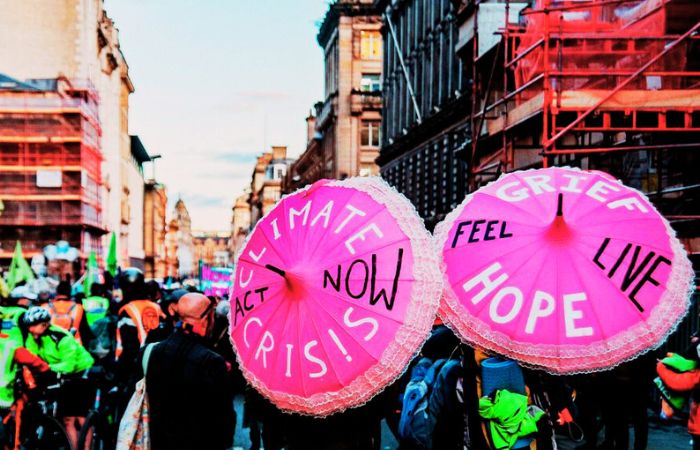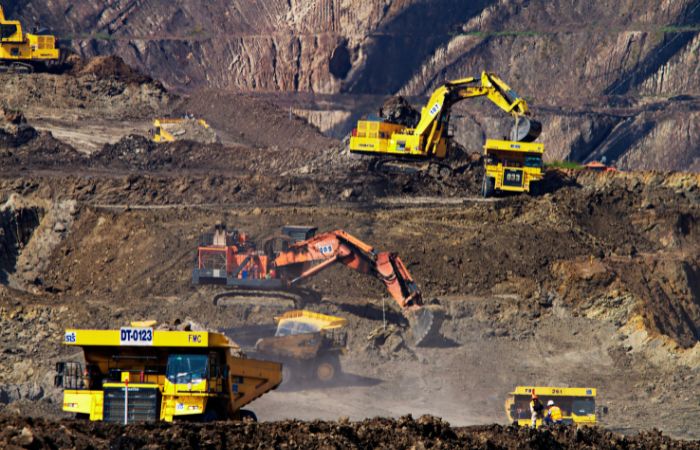Hi! It’s konkaz (@konkazuk).
After being postponed for a year due to the impact of COVID-19, COP26 (the UN Climate Conference) was held in Glasgow, Scotland, in 2021.
This conference was regarded as a key milestone in tackling climate change, as world leaders focused on how to put the Paris Agreement into real, practical steps.
Here, we’ll highlight three main points from what’s known as the “Glasgow Conference”.
The 1.5°C Target Reconfirmed – Why Does It Matter?

The Paris Agreement of 2015 set the target of limiting global temperature rise to 1.5°C. But before COP26 in Glasgow, plenty of people were still saying, “Isn’t 2°C good enough?”
The gap between 1.5°C and 2°C is huge. For example, at 2°C, countries near the equator could face severe crop failures, while low-lying island nations would be threatened with complete submersion due to rising sea levels.
That’s why it was such a big deal that COP26 once again confirmed the need to “truly stick to the 1.5°C goal”, something scientists and climate activists have been pushing for all along.
On top of that, every country was asked to revise its emission-cutting plan, called an NDC (Nationally Determined Contribution), by 2030.
In other words, short-term targets were also set for achieving net zero by 2050, effectively testing how much genuine effort can be made over the next decade.
Coal and Fossil Fuels on the Table

To bring emission levels in line with what is needed to keep warming below 1.5°C, we must tackle the issue of fossil fuels — coal, gas, and oil — head-on, as they account for more than 75% of global greenhouse gas emissions.
What made the Glasgow conference stand out was that, for the first time ever, cutting back on coal power and phasing out fossil fuel subsidies were included in the agreement.
Such direct references had never appeared in previous UN climate conferences, so environmental NGOs and younger activists praised it, declaring that fossil fuels had finally been addressed.

However, here’s the catch: the draft first said “phase out coal power,” but countries like China and India pushed back, and the final text ended up with the softer phrase “phase down”.
Nevertheless, since no agreement text had ever directly mentioned “fossil fuels” before, this can be regarded as a significant turning point.
A New Step: Setting Up a Fund for Climate Loss and Damage

Honestly, for this part I’d really like you to read Mary Robinson’s Climate Justice.
In essence…
People in developing countries, who did almost nothing to cause climate change, are the ones hit hardest—facing deadly floods and droughts—because rich nations pumped out greenhouse gases like there was no tomorrow. The call is clear: those responsible must be held accountable.
This argument is entirely reasonable. Yet, for a long time, industrialized nations—speaking from a position of superiority—have brushed it aside, treating it as if it were merely a matter of aid or charity.
But at this Glasgow conference, pressure from developing nations most affected by climate impacts led to long-awaited progress on establishing a system for compensating “loss and damage“.
Questions remain about how much funding will actually be raised and how it will be used, but for developing countries, the fact that developed nations have finally committed to providing financial support for their losses marks a historic breakthrough after decades of calls for justice.
Summary

In short, COP26 in Glasgow was the meeting that gave the Paris Agreement its practical framework.
While it takes time to move things forward among countries with very different circumstances, and many challenges remain, this meeting marked a turning point where the world began to act in earnest to keep the 1.5°C target alive.
What happens next depends on whether countries keep their promises.
That wraps up today’s topic on the Glasgow conference.
Bye now.
konkaz
*You can read this blog post in Japanese from the link below.
👉 COP26(グラスゴー会議)が動かしたものとは?1.5℃目標に向けた10年のスタート

